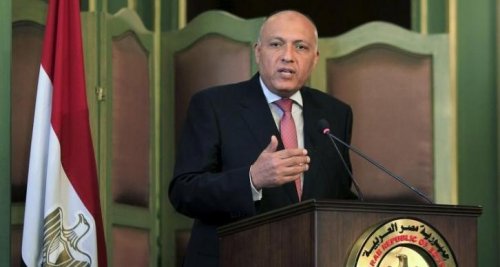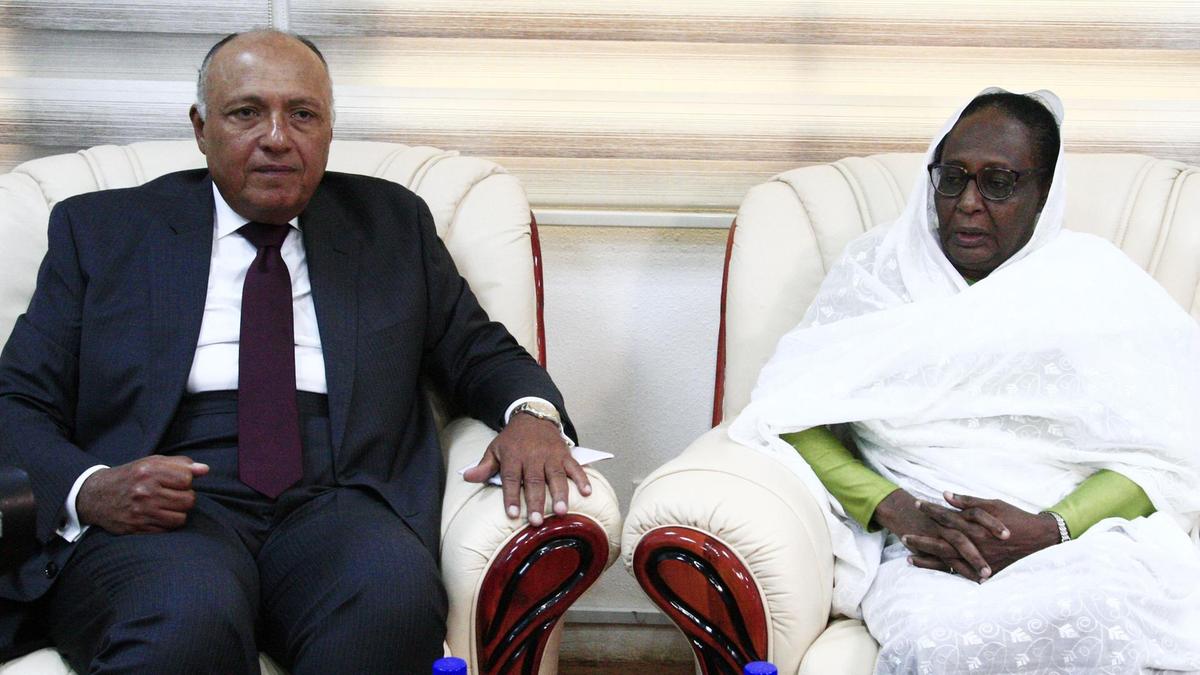
Egyptian Foreign Minister Sameh Shoukry said on Monday that Cairo was exerting efforts to remove Sudan from the United States’ (US) list of state sponsors of terrorism.
Sudan joined the U.S.’s list in 1993 because the African country hosted Osama Bin Ladin. However, the Obama administration was going to de-list Sudan, but once mass protests erupted nationwide last December against the three-decade ruler Omar El Bashir, the process was put on hold.
During his talks with Sudanese officials, the Egyptian Foreign Minister said that he discussed removing Sudan from the U.S.’s list of state sponsors of terrorism.
Shukri’s remarks came during a joint press conference with his Sudanese counterpart, Asma Abdullah, in Khartoum.
This will end Sudan’s decades of international rejection allowing it to rebuild its relations with the international community and readmitting the country to partake in the global economy. In 1997, the U.S imposed economic sanctions on Sudan that were lifted in October 2017.
Sudan is entering a new phase in the country’s history. After 30 years of oppression, revolutionaries were able to attain a three-year power-sharing deal last month between the military and civilian parties and protest groups.
The new cabinet also includes four women, among them Asmaa Abdallah, who becomes the country’s first female foreign minister.
It also includes Ibrahim Elbadawi, a former World Bank economist who will serve as finance minister, and Madani Abbas Madani, a leader of the civilian coalition that negotiated the transition deal with the military, as a minister of industry and trade.
General Jamal Omar, a member of the Transitional Military Council that took over from Bashir, was appointed as defence minister.
“The top priority of the transitional period is to stop war and to build sustainable peace,” Prime Minister Abdalla Hamdok said on Thursday.
“Armed factions are an integral part of the revolution and the current (political) climate provides a great chance to reach understandings on peace,” he said.
Demonstrations over a worsening economic crisis in Sudan escalated into a months-long nationwide protest movement against Bashir’s three-decade rule.
Bashir ended his rule in April was later arrested and is on trial on charges of illegal acquisition and use of foreign funds.







Comments (0)